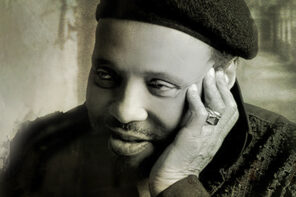Mark Seal published the fourth in his series of “The Madoff Chronicles” for Vanity Fair magazine this month; this time he turns his attention to the still-mysterious figure of Ruth Madoff, wife to the criminal du jour. It makes for strange reading.
The question, of course, is as obvious and inescapable as it is unanswerable: what did she know and when did she know (or suspect) it?
Just a week before Bernard Madoff allegedly confessed his scheme to his wife and children, Ruth Madoff withdrew $15.5 million from her own personal account. She had an office in the so-called Lipstick Building and normally came to work with her husband, a man who proudly declared that “Nothing gets by Ruth,” and reminded his friends that she used to pay all the bills back when they were still housed in their office at 110 Wall Street, back in the old days. But she never set foot on the 17th floor of the Lipstick Building, where the real secret scam was housed.
Ruth Madoff was known by many to be a social climber, she was always the surest way to gain access to the Ponzi scheme if husband Bernie would not return your calls, and she clearly loved the high life they both led—the multiple homes on three continents, the travel, the nouveau glamour of it all.
But when it all came apart, Ruth Madoff posted most of the $10 million bail to get her husband home, and she has stood loyally by him even at the apparent expense of her relationship with her two sons. She has suffered a “Leona Helmsley style” demonization since then, which has reduced her to sad, incognito forays in disguise to the market or the theater (tellingly, she has a passion for the theater). She visited her husband every Monday at the Metropolitan Correctional Center in Manhattan, until his sentencing in June, and his eventual transfer to the Butner Federal Correctional Complex in Durham, North Carolina.
Her accounts were frozen, including her Social Security payouts, and at high noon on July 2, 2009, federal marshals took possession of their 64th Street penthouse, which had been her primary residence since 1984. She left with a single straw beach bag, as a small crowd cheered. She has had to beg to secure $2 million of her own money, and that only by agreeing to give up any claim to all other monies, as the Madoff estate is liquidated in order to pay back some of her husband’s victims.
Two stories jump out at you. The first took place at Cabo San Lucas on Bernard Madoff’s 70th birthday (on April 29, 2008). Ruth had arranged an elaborate and intimate gathering with some of his oldest friends, many of whom were also investors. At the roast that preceded the dinner, one of his friends jibed, “And Bernie, you know you’re a complete shyster.”
Ruth Madoff came uncorked, a stream of expletives pouring out of the mouth of a debutante who had never demonstrated knowledge of such words before. She couldn’t let it go, couldn’t come down; the party, of course, was ruined. Is it possible that she knew of the scheme now, perhaps had just learned of it? Was that what prompted this over-the-top display of defensive rage?
Just seven months later, on December 10, 2008, the Madoffs hosted their annual Christmas party at the Rosa Mexicano restaurant on East 18th Street. Bernard Madoff had informed his sons and his wife of the impending trouble earlier that day, and planned to turn himself in the following morning,. The sons opted out of the party. But Ruth Madoff was there, by his side, never letting on that there was so much as a cloud on the horizon. How could the same woman be so in control now, when she surely knew what was afoot, and so out of control seven months earlier, when she insists that she did not?
There is no way to answer such questions, just as there is no way to peer inside the human heart. But through it all, one comes to a quiet sympathy for Ruth Madoff, one amplified and magnified by the stream of vitriol she has absorbed in the press. She has already been tried and convicted in the court of public opinion, and she literally has nowhere to hide. She was a woman who applied herself dutifully and completely to the task of being a wife who could move in elite circles. She was pretty, tanned, fit. She has aged fifteen years in as many weeks. The toll must be enormous, and for a woman of her evident pride, excruciating.
And she lacks the rhetorical gifts to communicate any of this to us. She has allowed her lawyer to speak on her behalf and has refused to answer any questions, save through him. His prose lacks the poetry a theater-lover might wish for.
Is this why I find myself thinking of Shakespeare? You may recall the incredible character-sketch of Lady Macbeth. In the beginning, as the drama unfolds, she is not only the nursemaid to her husband’s flagging ambition; she is the engine driving its fulfillment. Her counsel is firm of purpose, almost inhumanly so. She cautions him against… compassion:
These deeds must not be thought
After these ways; so, it will make us mad.
And when her husband reveals to her that his sleep has been disrupted by recurrent dreams, dreams in which he hears the imagined cry of his victims, what he hears is telling: “Sleep no more!/ Macbeth doth murther Sleep.” His wife calls him childish, shuttles him back to bed, and dares the deed herself.
Infirm of purpose!
Give me the daggers. The sleeping and the dead Are but as pictures. ‘tis the eye of childhood That fears a painted devil. (Macbeth II.2)
We learn that this has all been a wicked premonition. Sleep will be slaughtered, in the end. The wife had always had the stomach for what her husband did not dare. She saw more, and she saw further. And for this very reason, she is completely undone, as he never is.
We meet her at the end of the play, walking in her sleep, crying out repeatedly about “spots.”
“Yet here’s a spot.”
“Out, damned spot! Out, I say!…
“Yet who would have thought the old man to have had so much blood in him?”
“What, will these hands ne’er be clean?”(Macbeth V.1)
We in the audience know that the answer is No, they never will be.
And that is the tragedy of Ruth Madoff. Her husband hath murthered Sleep. She will never sleep easy again, no more than her husband’s countless victims can, and her hands will never be clean. It matters not a whit whether she knew what he was up to or not. Not now. The normal dividing line between dream and reality has vanished. She lives in the sometime-world all insomniacs know and shudder before, the nether world of shadow-realities, and of demons who do not sleep.
On the one hand, it is the Madoff premonition fulfilled. His scheme traded on the possibility of blurring the line between dream-world and reality, after all. We still call it “the American dream.”
Has there not been a lot of this in the news of late? Michael Jackson, not the Madoffs, graces the cover of this month’s Vanity Fair. Now that his death has been re-classified as a homicide, we have learned disturbing new details about the man and his final night. He has been tormented by insomnia for years. Never mind the causes. They are surely legion.
And so he adopted ever more extreme pharmaceutical remedies, all in the vain quest for quiet, for rest, for dreamless sleep. He never found it. As his doctor was allegedly trying to wean him off the most dangerous drugs he was taking, Jackson found no relief in lesser regimes. Restlessly roaming the darkened hallways, failing to find his rest. And so he returned, time and again, for more medication, more shielding from the unbearable weight of the night-world, the roving of a mind that cannot find its rest. This went on until 1:00 or 2:00 in the morning—when what proved to be the final, lethal dose was administered.
“Will these hands ne’er be clean?”
It is a question of uneasy conscience, an unquiet question for all of us who gaze upon the stage in these unsettled times.




